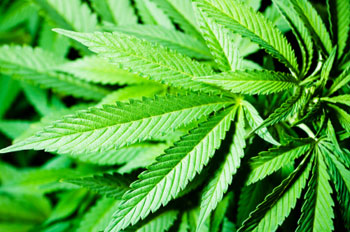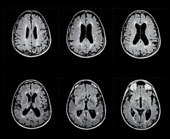
“Chemical compounds found in marijuana can help treat multiple sclerosis-like diseases in mice by preventing inflammation in the brain and spinal cord, according to a study reported in the Journal of Neuroimmune Pharmacology.
“Inflammation is part of the body’s natural immune response, but in cases like MS, it gets out of hand,” says Dr. Ewa Kozela of Tel Aviv University, Israel.
“Our study looks at how compounds isolated from marijuana can be used to regulate inflammation to protect the nervous system and its functions.”
Dr. Kozela and colleagues set out to see if the known anti-inflammatory properties of two substances found in marijuana – the cannabinoids known as tetrahydrocannabinol (THC) and cannabidiol (CBD) – could also be applied to the treatment of inflammation associated with MS.
With either THC or CBD, the researchers treated immune cells that specifically target and harm the brain and spinal cord. In response to both chemicals, the immune cells, isolated from paralyzed mice, produced fewer inflammatory molecules, particularly interleukin 17 (IL-17).
Interleukin 17 “is strongly associated with MS and very harmful to nerve cells and their insulating covers,” the researchers say. They conclude:
“The presence of CBD or THC restrains the immune cells from triggering the production of inflammatory molecules, and limits the molecules’ ability to reach and damage the brain and spinal cord.”
More: http://www.medicalnewstoday.com/articles/267161.php
“Cannabinoids Decrease the Th17 Inflammatory Autoimmune Phenotype” http://link.springer.com/article/10.1007/s11481-013-9493-1



